An ancient town threads its history to weave new trends among talented clothing designers, Xing Wen reports in Tongxiang, Zhejiang province.
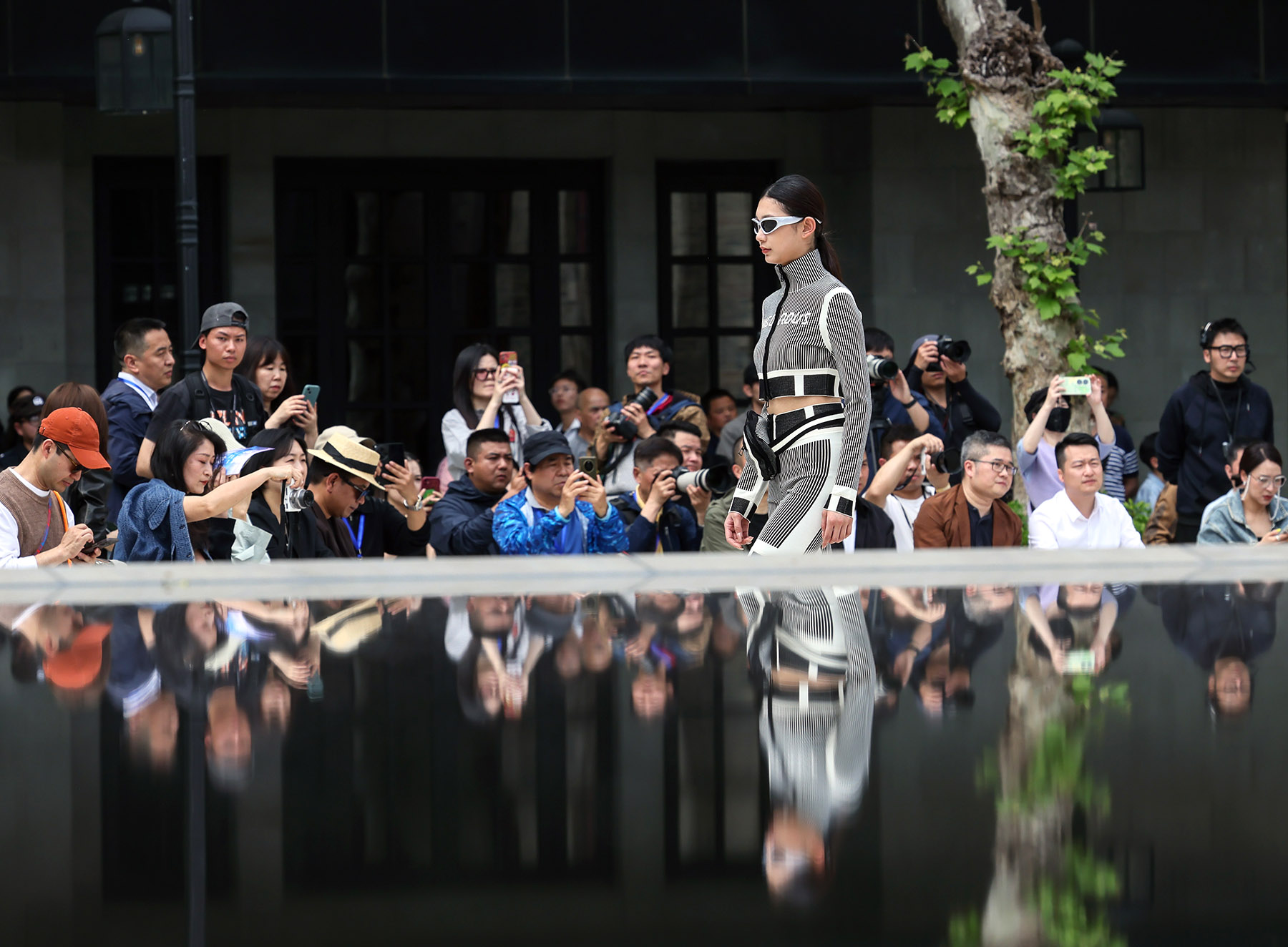
Against the backdrop of quaint, intricately arranged old buildings, wooden boats seem to glide on the canal, propelled by gentle oar strokes, while a pair of black swans elegantly accompany the procession, gracefully swimming alongside. Each boat hosts a stunning model displaying exquisite attire, the vivid hues of which are mirrored in the emerald waters. The waterways have been transformed into a unique fashion runway.
Puyuan Fashion Week took place in the Puyuan Fashion Resort in Tongxiang, Jiaxing, East China's Zhejiang province, late last month. This location boasts the picturesque charm of a typical water town of Jiangnan region (south of the lower reaches of the Yangtze River), with fashionable elements woven into its fabric. Strolling through the resort, one can spot boutiques, textile exhibitions, millinery shops, jewelry stores and needle felting workshops.
READ MORE: Engineering a fashionable trend
Here, any random corridor, alleyway, or square could be easily transformed into prestigious runways for renowned fashion brands, such as Vera Wang, The Atelier and La Mofiel, attracting numerous artists, supermodels, trendsetters and designers to embrace modern fashion in such antique surroundings.
Puyuan ancient town originated in the Southern Song period (1127-1279). For the past four decades, it has been celebrated for its production of wool sweaters. The local sweater industry stands as China's largest domestic production base and distribution center for woolen knitwear. More than 700 million sweaters are sold annually from Puyuan to more than 20 countries and regions.
In recent years, the town has actively pursued industrial upgrades and integration with the global fashion market. An important initiative in this endeavor has been the construction of Puyuan Fashion Resort, which opened to the public last spring, along with the launch of Puyuan Fashion Week held in the resort.
Since its founding, Puyuan Fashion Resort has become the backdrop for numerous crossover events, including Puyuan Fashion Week, the Douyin Creator Conference and the Zhizu GQ Men of the Year Ceremony.
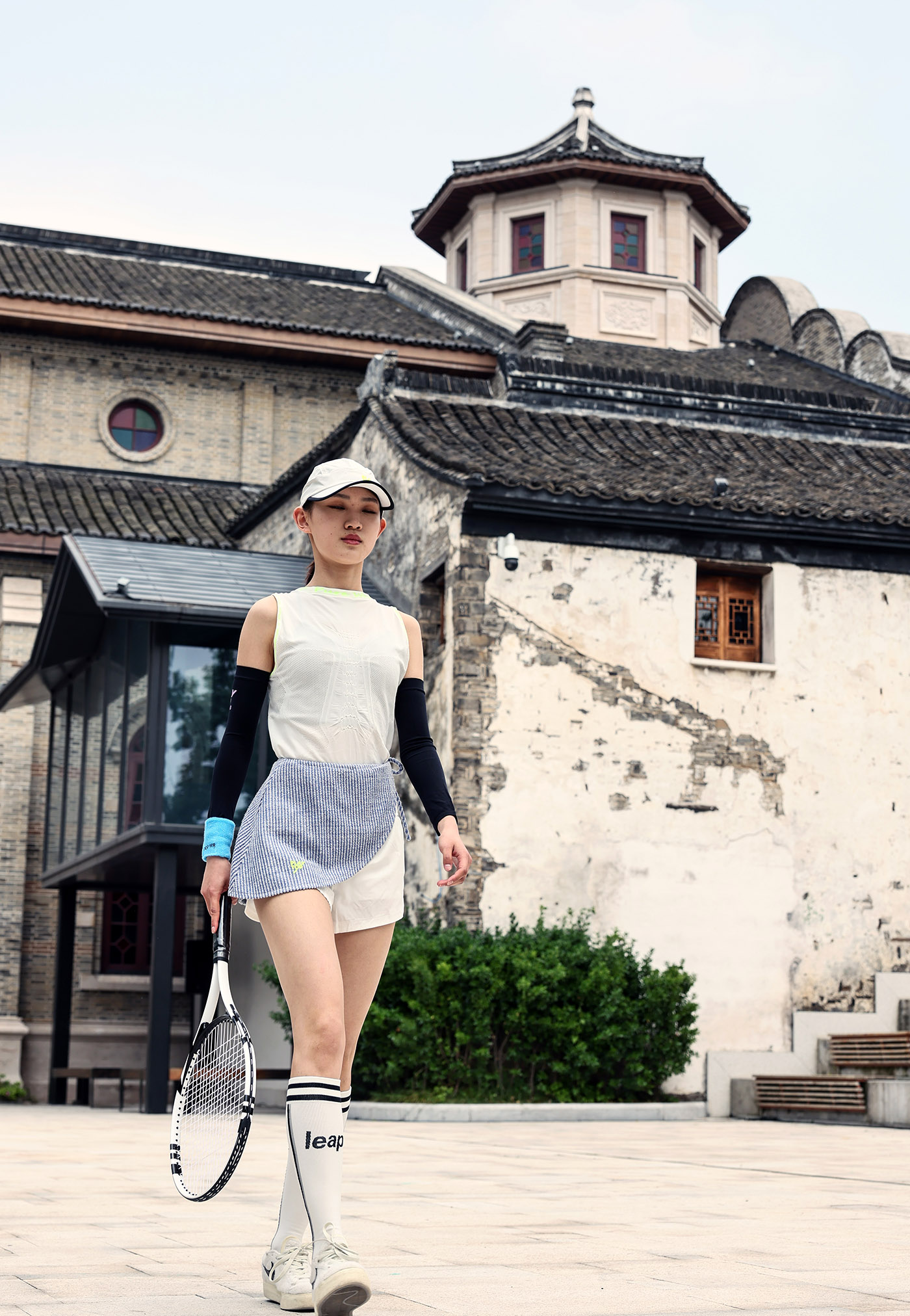
Textile tradition
The rich tradition of textile crafts in Puyuan dates back centuries. As early as the Southern Song period, the region began producing a type of silk widely known as puchou (Puyuan's silk).
This type of silk boasts a diversity of attributes, including fine texture, softness, vibrant colors and durability, making it a renowned product in history that was exported overseas.
From the middle of the Ming Dynasty (1368-1644), farmers in Puyuan gradually developed sericulture (silkworm cultivation), and silk weaving was their main livelihood.
Today, the prosperous woolen knitting scene in Puyuan can be traced back to the 1970s. In 1976, a local production cooperative in the town purchased three hand-operated flat-knitting machines and began producing woolen sweaters. After that, home workshops and factories for sweater production gradually sprang up in the area.
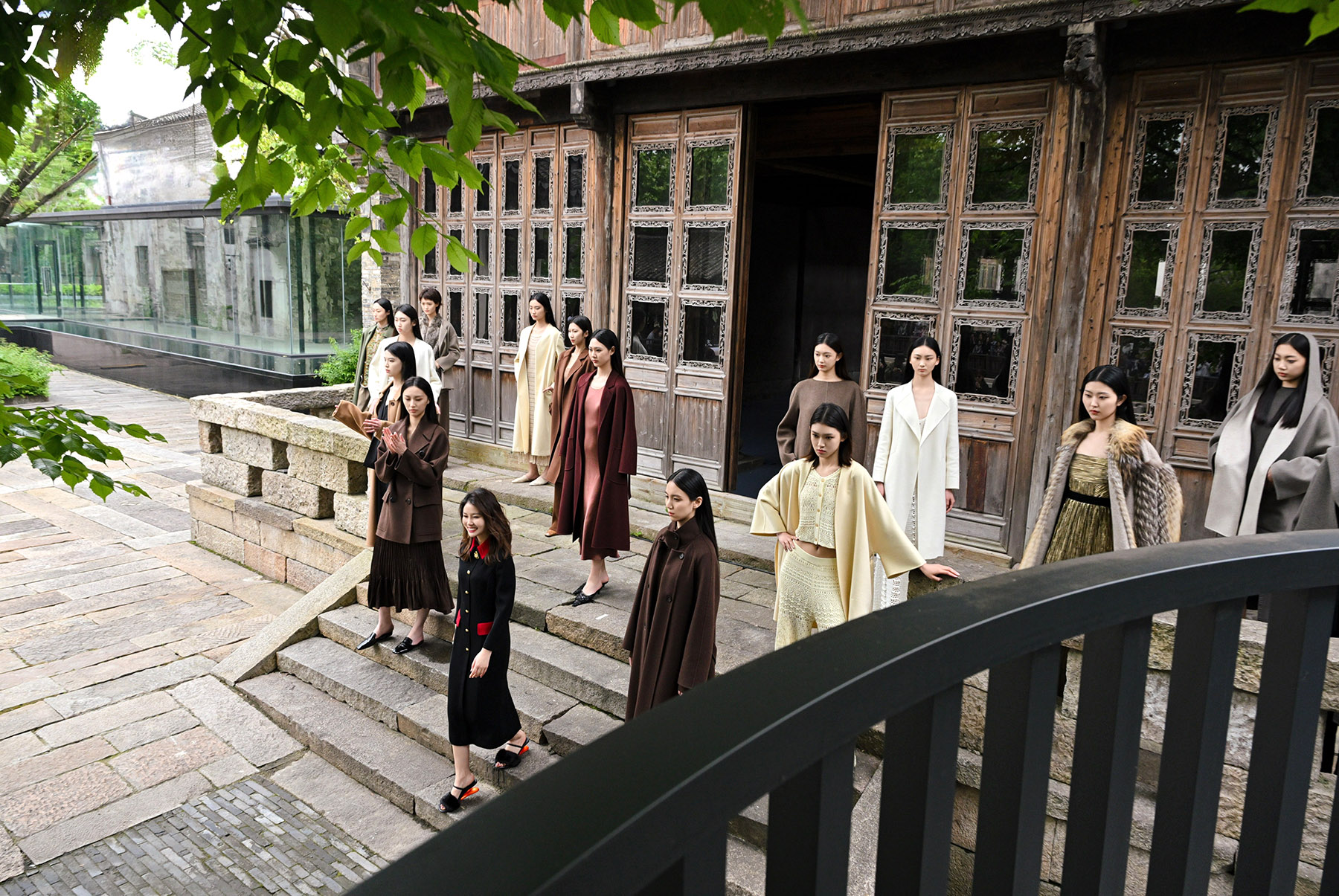
In 1988, 20-year-old native Chen Jiangen had been working as a bricklayer for four years. "Working as a bricklayer was very hard, working outdoors in scorching summers and freezing winters. I envied the workers in the sweater factory who could work indoors," Chen recalls.
One day, he learned that one of his uncles-in-law who used to work in a sweater factory owned a knitting machine that wasn't being used. So, he borrowed it and, within a week, working from dawn until midnight each day, he knitted over a dozen sweaters.
"At that time, many people around me earned only 50 yuan ($6.9) a month, and I made over 300 yuan in a week. I felt like I had struck it rich," Chen says.
He then hired one person to use the machine during the day while he worked through the night. So began his entrepreneurial journey with a borrowed knitting machine that operated nonstop for 24 hours a day.
The same year, Puyuan town raised funds from various sources to construct commercial buildings, laying the groundwork for the wool sweater market.
"From 1976 to the early 1990s, self-employed locals working in wool sweater production flourished," Chen says, adding that he viewed this as the first phase for Puyuan to develop into the largest domestic production base and distribution center for woolen knitwear.
Chen's business also grew rapidly. Soon, he got to open his own factory and expanded operations through several relocations.
"I remember in 1993, there were many buses from Shanghai, and the shops in the local wool sweater market were packed with people coming to make purchases," he recalls.
As his factory's production capacity increased, Chen gradually realized the importance of design. He discovered that if one focused solely on producing a particular popular style for a period without making changes, they would struggle to sell surplus inventory.
So, in 1997, Chen posted recruitment ads to hire designers.
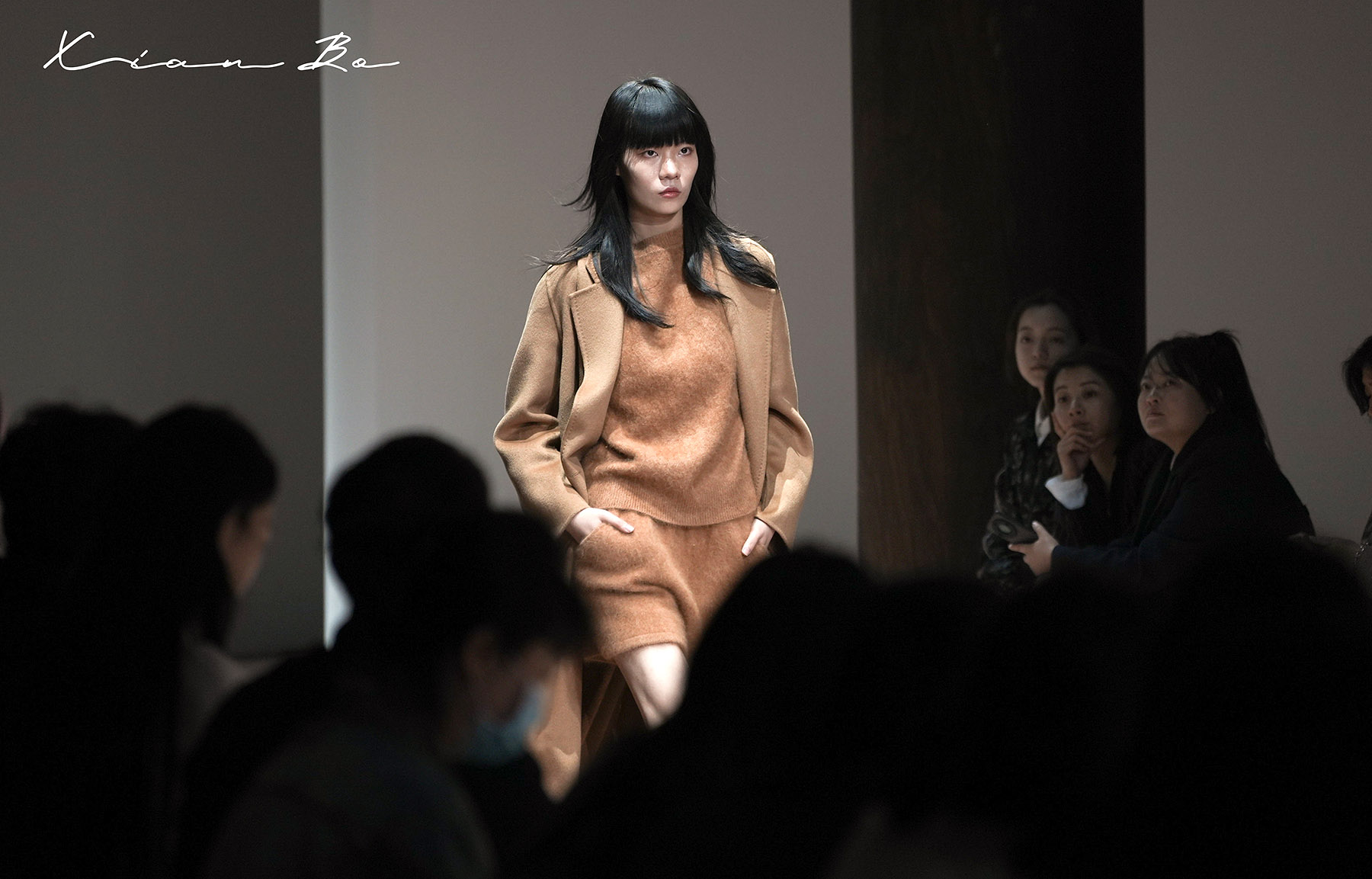
He hired a young man named Shi Bo. But Shi quit and returned to his hometown in a small county in Jiangxi province within less than a year.
"At that time, it wasn't easy to find designers," Chen recalls.
Determined to recruit talent, Chen traveled to the small county where Shi lived, inquiring about Shi's whereabouts and eventually finding his home. He hoped Shi would return to Tongxiang to work. Shi was touched by Chen's persistence and decided to return to Tongxiang.
Later, this designer fell in love with the daughter of a workshop director in Chen's company, settled down in Tongxiang and established his own clothing company.
In 2000, Puyuan began construction on a large industrial park. The following year, the news of China's entry into the World Trade Organization boosted Chen's confidence. He then moved his factory to this industrial park and expanded it to nearly 3,900 square meters.
"In the 2000s, local wool-textile businesspeople began to inquire about enhancing brand influence and quality," Chen remarks.
"Previously, only industry insiders knew about Puyuan. We hoped that more consumers would likewise come to know about Puyuan."

Modern magic
Puyuan has now established a comprehensive system that encompasses everything from the supply of raw wool yarn, knitting machinery and technological development to logistics, foreign trade services, human resources and supporting facilities.
Additionally, there have been multiple improvements in production equipment. Xia Liangen, 53, has been leading the clothing company Snaier for 28 years. Its workshops have upgraded from using manual flat-knitting machines to computerized ones and then to intelligent machines.
In early 2020, Xia digitally transformed the factory workshop. All primary intelligent computer flat-knitting machines were connected online.
Workers could simply scan QR codes via a mobile app to automate counting and wage settlement and upload production progress.
His son, Xia Chengjun, a London College of Fashion graduate, has established a new media marketing department at their company.
He launched a new product line called Carvides, which he has been promoting on social media platforms like Xiaohongshu and Douyin. He provides daily updates with images, short videos and articles about products and production lines to drive new growth of their clothing company.
Similarly, another entrepreneur, Xia Wentian, returned to Tongxiang after graduating with a degree in finance and accounting from the United States to assist her parents in building the sweater brand, Sendeao.
"I grew up playing among piles of sweaters and am familiar with every production process. Every worker in the company's workshop feels like family to me," the 32-year-old says, explaining why she joined her parents' company.
"As I grew older, I naturally felt a sense of responsibility. With so many employees and their families relying on this company for their livelihoods, I hope to make it a centennial enterprise."
Although she's not particularly interested in business management, she has strived to find a balance between responsibility and her own interests.
So, in 2018, she began creating a concept store named Vars Vigo, which integrates various business formats, such as a clothing store, cafe, flower shop, bookstore and themed salon.
"The store would regularly host clothing pairing classes, floral art classes, yoga classes and other activities. I aim to gather a community in this store where all members share a similar passion for beauty," she says.
"I hope to create a brand that provides everyone with a sense of beauty and experience, influencing people's lifestyles. I am very interested in this."
The Puyuan Fashion Week showcases four designer brand debuts and six local brands, including Sendeao, displayed through musical street shows.
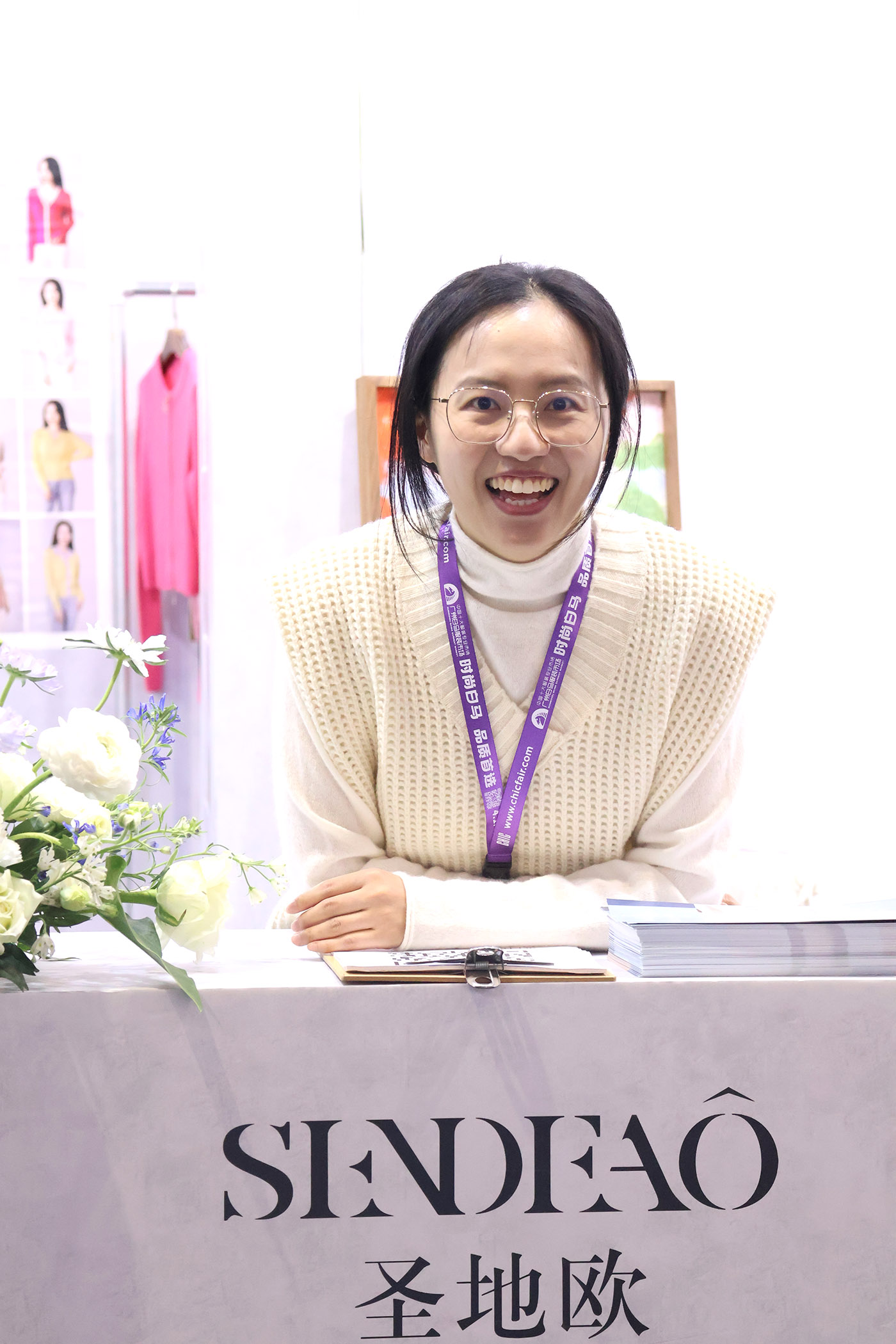
Yao Jie, CEO of Puyuan Fashion Resort, says the picturesque ancient town's setting and rich cultural atmosphere often elevate the allure of clothing and accessories. The immersive exhibitions, coupled with the tourist influx, offer local brands greater exposure to a broader audience.
Qian Meihe, 34, founder of the young fashion brand Xian Bo, which specializes in cashmere coats, agrees.
"I'm loving the blend of old-world charm and modern flair at Puyuan Fashion Resort. Catching shows in this ambience sparks fresh inspiration. The chance to chat with topnotch designers like Vera Wang and Jimmy Choo here has been incredibly enriching," she says.
Qian's parents were also businesspeople who started their own men's clothing business from scratch in the town. Initially, they did not want Qian to follow in their footsteps.
She completed her undergraduate program in economics at a university in Vancouver. After that, she joined a local luxury boutique, where she discovered her unique talent.
"I found I was effective at communicating with clients. I quickly understood their needs for fashionable items in different scenarios and other ideas, and I could give professional advice," she says. "I really enjoyed this process."
She recalls that she once found a shirt she liked while shopping, but it wasn't her size. She decided to buy it and modify it to fit her. "That shirt is still in my wardrobe," she says.
After returning to China, she chose to establish her own brand, Xian Bo, which means "platinum in fibers". She hopes her communication skills can bridge the gap between consumers, designers and producers. So, her customers could purchase durable coats suitable for various occasions.
"I see Western fashion as having sleek techniques and clean lines, while Chinese styles exude an elegant allure. Xian Bo aims to seamlessly blend these Eastern and Western styles on individuals," Qian explains.
ALSO READ: Embroidering a fashionable career
To better support young entrepreneurs like Xia Wentian and Qian, the local government has set up WeChat groups focused on sharing updates on clothing industry policies and event details.
Qian observes a notable difference in today's clothing industry in the town compared to the older generation.
"I found that the younger generations are more open to communicating with their peers in the same industry, rather than shying away due to fears of leaking trade secrets. They are inclined to help one another and exchange information, which fosters a positive environment of mutual growth," she says.
This shift has contributed to an increasing number of young people choosing to return to Puyuan from urban centers and abroad.
Contact the writer at xingwen@chinadaily.com.cn


